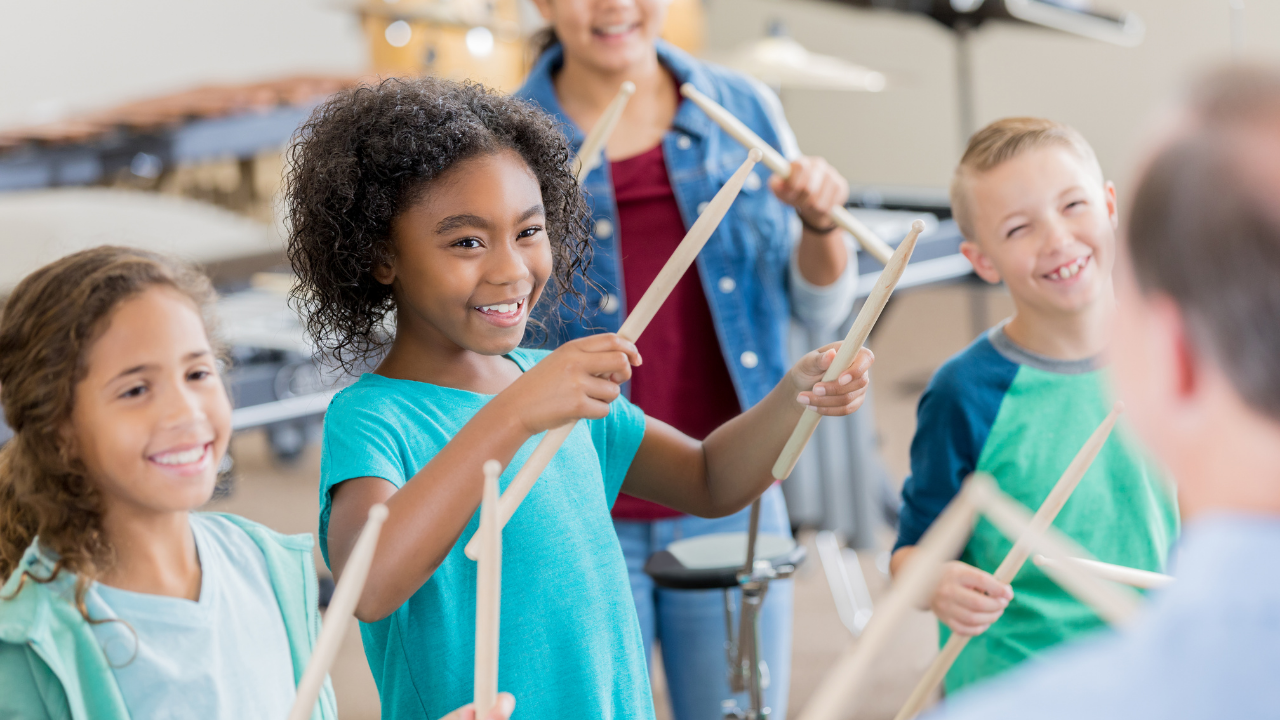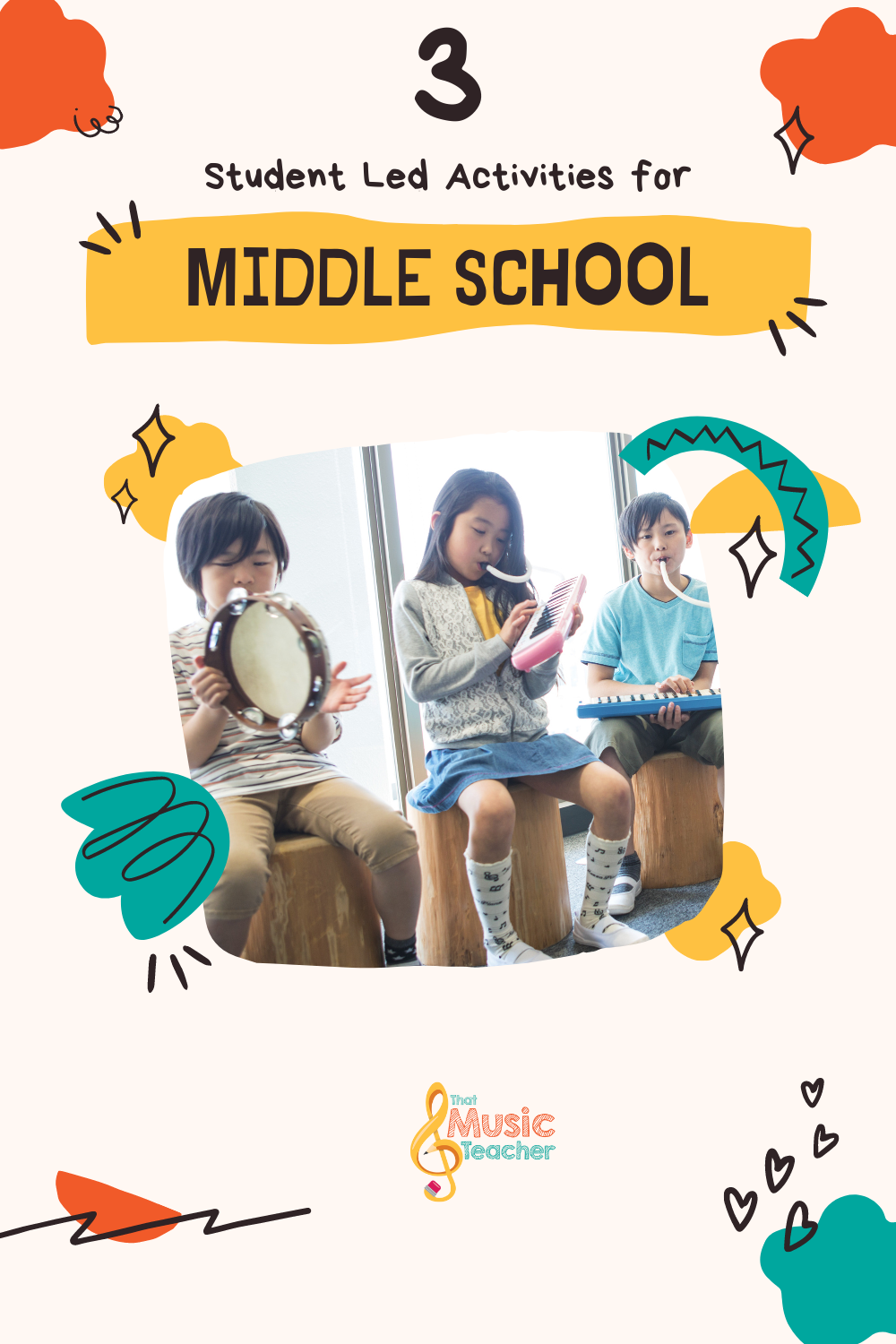
3 Student Led Activities for Middle School
Oct 12, 2021If you are reading this, you made it through September 2021 of teaching middle schoolers and for that I commend you.
In all seriousness, this school year has been a challenging one to say the least! I have enjoyed so many aspects of being back in person with my students but also have struggled (like many!) with classroom management, meeting the needs of my students in the classroom, and generally getting back into the swing of teaching in-person.
That being said, I have found so much success in a few student-led activities that I just had to share with you all. Student-led activities do not have to span the entirety of a whole lesson and can even be 5-10 minute activities that students facilitate!
You might be asking yourself, “Why do I need student-led activities in my classroom?” Student-led activities are so beneficial for student development, growth, and self-confidence! If students feel secure and safe in their space, they will be willing to take chances and grow in ways that they cannot in teacher-led activities. So, with that being said, let’s jump right into them!
Student-Led Drum Circle Activities
Okay, hear me out on this one. If you teach 6th graders and feel that a student-led drum circle would lead to a catastrophic cacophony of sound that would plummet your classroom into chaos, you are not alone. I definitely thought that this would not go as well as it did. However, with the right parameters in place before this activity, it can go surprisingly well!
Before you have a student-led drum circle, you should have a few teacher-led drumming activities and a rundown of drumming expectations. By modeling and teaching children how to play the drums beforehand, this activity will go much smoother for you. Once your students are familiar with the drums and have done a few drumming activities with you as the facilitator first, you can then turn the facilitator role over to students. Here are a few activities that work well with students in drum circles:
- Poison Pattern: Play a rhythmic pattern (for example: ta tika tika) for children and tell them that it is a “poison pattern.” Tell children that they will echo you on ALL of the patterns you play unless you are playing the poison pattern. Once you facilitate this game a few times, have a student lead the classroom and play patterns (including the poison pattern!)
- Drumming Call and Response Q and A: In this Call and Response game, start as the facilitator and ask students questions. Students will have to answer by speaking AND playing a drumming pattern on their drum. For example, you would ask, “What was for dinner?” (playing and speaking the rhythm of the question) and the student would answer, “Pasta with butter sauce,” by playing and speaking the rhythm as the answer. Once you establish this pattern and ask questions, you can then turn it over to students where they can ask their peers (and you!) questions and their peers would have to respond in the same fashion.
Student-Led Class Expectations
This is another activity that I suggest you begin facilitating and then turn over to students. Once you cover ground rules of creating expectations together, have a student be the “expectation writer,” and another student be the “moderator.” The “moderator” student will take peer suggestions and work with the expectation writer to write down the expectations. You may have to jump in and help with generating ideas or fine-tuning expectations, but students really love this activity when they can do it themselves and definitely take much more ownership in the class community when they develop their classroom expectations together.
Student Stations!
This is not entirely student-led, but somewhere in between totally student-led and teacher led. I love using stations so that children can work on concepts or learn about new concepts without a lecture or entire lesson where you (the teacher) are leading the learning. You can also let children decide which stations they want to start with and create a self-assessment form for students to fill out at the end of the stations activities to have them reflect on what went well and what they still may need to work on.
While on the subject, Self-assessments are another form of a student-led activity. This works on self-reflection skills and having students understand how they are learning and what is helping them learn.
For stations, I have done a few in my classroom this Fall and they have been extremely successful. Some have been stations to teach new content and some have been stations to cover content already learned. For new content, I recommend that you give a 10 minute primer on some concepts/vocabulary. I also recommend walking around the room to help assist students if they are confused on any concepts. For old content review, you could even situate yourself at an “assessment” station to take data on a specific skill (such as ukulele strumming or chords, for example). Either way, stations are a great way to break the traditional mold of teaching and can give music teachers new ways to observe and assist learners in the classroom.
I hope that this article gave you some new ideas or inspiration for letting your students take their learning into their own hands! While some of these activities need some teacher facilitation to get them going, students can ultimately take on the role of facilitator. In the end, they will gain self-confidence and leadership skills that they can carry into other classrooms and roles throughout their education career!
This article was submitted by Lauren Marcinkowski contributing author for ThatMusicTeacher.com. Interested in becoming a contributing author? Email resume and writing sample to [email protected]

Don't miss a beat!
New moves, motivation, and classes delivered to your inbox.
We hate SPAM. We will never sell your information, for any reason.

